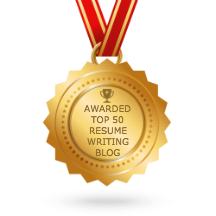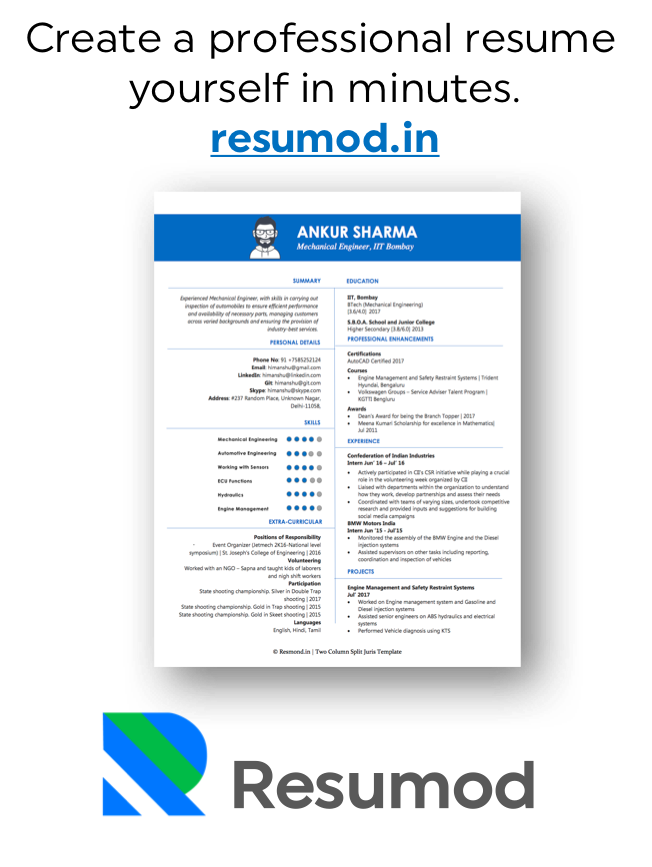You’ve worked across multiple organizations on multiple projects. You have handled large teams and you’ve grown your skill set over the years working on multiple domains and for multiple clients.
With your skill set and experience, you are an impressive candidate for any recruiter. But the problem – how do you showcase your wealth of experience in your resume?
The answer- by focusing on resume strengths.
Highlighting your strengths showcases what makes you a valuable asset and how you can contribute to a team’s success. But, crafting effective strengths for your resume requires more than simply listing personality traits. It’s about strategically demonstrating the qualities and work styles that make you a perfect fit for the specific role you’re targeting.
This blog post equips you with the tools to transform your resume from generic to captivating. We’ll explore key strengths valued by employers for mid-senior professionals, along with powerful tips to craft impactful statements that resonate with recruiters.
Know Your Audience (and the Job):
The first step is understanding who’s reading your resume. Research the company and the specific position you’re applying for. Identify the key skills and qualities they seek in a candidate. This allows you to tailor your strengths section to directly address those needs.
For example, if you’re applying for a leadership role, highlighting your strengths in strategic thinking, decision-making, and team motivation will be more effective than emphasizing your attention to detail (though that could still be a valuable strength!).
Examples of Key Strengths for Mid-Senior Level Professionals:
1. Strategic Thinking: Mid-senior professionals are expected to see the bigger picture. Demonstrate your ability to analyze situations, identify key issues, and develop effective plans to achieve long-term goals.
Example: “Led a cross-functional team to assess market trends and develop a strategic marketing plan that resulted in a 15% increase in market share within a year.”
2. Decision-Making: Showcase your ability to gather and analyze information, weigh potential risks and rewards, and make sound decisions in a timely manner.
Example: “Successfully navigated a complex business challenge by analyzing market data, identifying cost-saving opportunities, and implementing a new supplier contract that saved the company $2 million annually.”
3. Problem-Solving: Challenges are inevitable in any workplace. Highlight your ability to identify problems, develop creative solutions, and overcome obstacles.
Example: “Identified a critical production bottleneck and spearheaded a team to implement a new workflow that increased efficiency by 20%.”
7 Powerful Tips to Make Your Resume Shine with Strengths
Crafting a compelling resume with strengths goes beyond just listing them. Here are 7 powerful tips to turn your strengths into a spotlight on your capabilities:
- Dig Deeper Than Soft Skills: Sure, communication and teamwork are important, but go beyond generic terms. Showcase specific examples of how you’ve used these skills in the past. Did you lead a brainstorming session that resulted in a breakthrough idea? Highlight your problem-solving prowess!
- Quantify Your Impact: Numbers speak volumes. Whenever possible, quantify the results you achieved with your strengths. Did your leadership skills motivate your team to exceed sales targets by 20%? Brag about that achievement! Quantifiable examples showcase your results orientation and success in previous roles.
- Action Verbs are Your Superpower: Instead of stating you “possess” strong communication skills, use action verbs like “spearheaded,” “facilitated,” or “negotiated” to illustrate how you actively utilized this strength.
- Focus on Action, Not Traits: There’s a difference between being a “team player” and demonstrating teamwork. Showcase how you’ve leveraged it in past situations. Did you collaborate effectively with diverse personalities to achieve a common goal? Highlight that experience!
- Keep it Short & Sweet: Recruiters are busy. Aim for 4-6 key strengths that are most relevant to the position. Use clear and concise language, avoiding jargon or overly complex sentences.
- Proofread Like a Pro: Typos and grammatical errors can leave a negative impression. Proofread your resume meticulously and consider having someone else review it for clarity and impact.
- Craft Compelling Examples! Here’s the difference between a generic and a powerful strength:
- Weak: “Communication Skills”
- Strong: “Developed and delivered a comprehensive training program that resulted in a 30% reduction in customer service inquiries.”
See the difference? The strong example showcases your communication skills in action and highlights the positive impact you had.
By following these tips and showcasing your unique strengths, you can craft a resume that grabs your attention and lands you on that interview. Remember, your resume is your story






